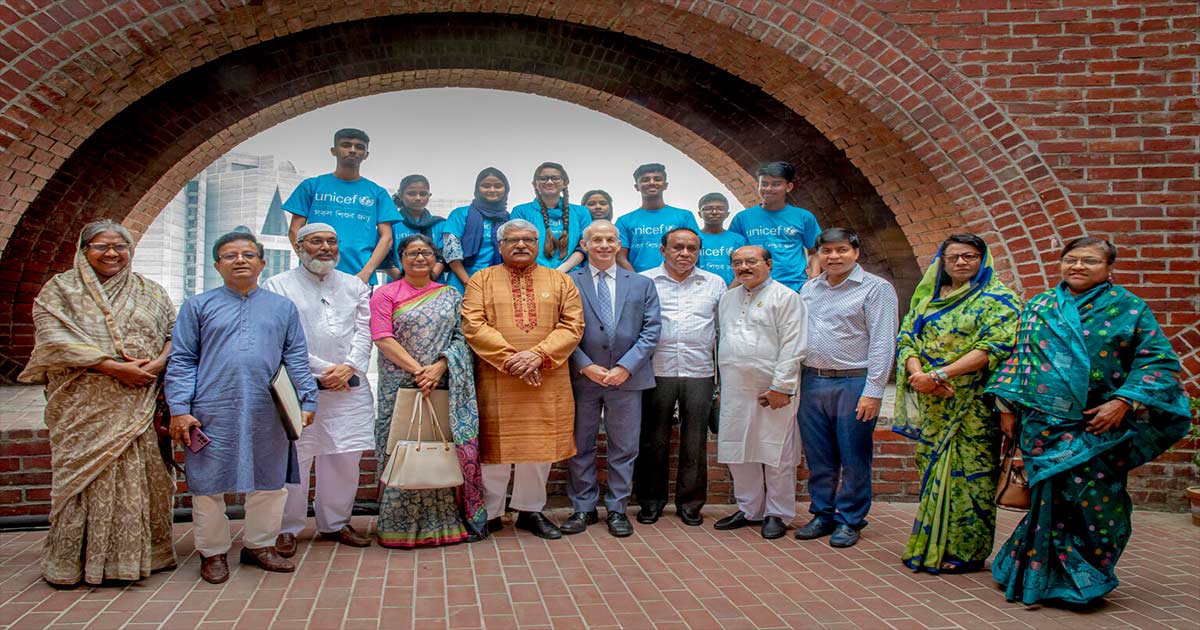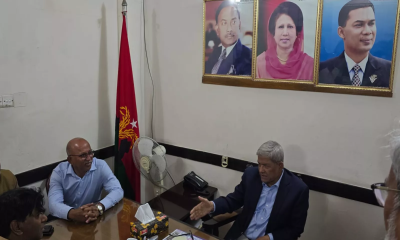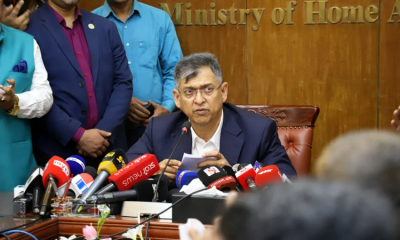United Nations International Children`s Emergency Fund (Unicef) and children of Bangladesh urged lawmakers to protect national budget allocations for social safety, health care, and education.
They came up with this demand during a briefing in the National Parliament of Bangladesh on Wednesday, reads a Unicef press release.
Children from all around the country and members of parliament, including those from the standing committees on finance, health, and education, attended the briefing on the "National budget 2023–2024 and child rights," which was co–organized by Unicef and the Parliamentary Caucus on Child Rights.
"I have talked to a lot of young people who had to work three meals a day. Most of them don`t attend school anymore. And many have to keep working while being sick day after day," claimed 14-year-old Khulna-based child journalist Maisha Anjum Arifa.
"After listening to the children today, it is obvious that there is much more work for us to do on their behalf as elected officials. I`ll keep fighting for their rights and representing their interests,” said Shamsul Hoque Tuku, the Deputy Speaker of the parliament and the Chairman of the Parliamentary Caucus on Child Rights
He also opined that he would ask his colleagues to do the same.
In the proposed budget for FY2023-24, allocations for education, health and social protection have proportionally declined compared to last year, said the handout of Unicef.
“Bangladesh has made laudable progress in meeting the rights, and improving the well-being of children. But there is a risk of sliding backwards if investments in critical social sectors are not maintained,” said Sheldon Yett, Unicef Representative to Bangladesh, to parliamentarians who attended the briefing session.
The Unicef analysis highlighted that the proposed health sector budget – down to 0.76 as a percentage of GDP in this year’s budget from 0.83 last year – would need significant boosting towards 2 per cent for Bangladesh to deliver on its commitment to Universal Health Coverage, reads the press release.
In addition, UNICEF’s presentation outlined how the education share of the budget has declined to 1.76 as a percentage of GDP in this year’s budget compared to 1.83 last year.
At the same time, a positive move towards greater inclusion is an increase of the educational stipend for students with disabilities.
In the area of social protection, Unicef welcomed the proposal to increase the number of beneficiaries of the Mother and Child Benefit Program, but noted the importance of adjusting entitlements for inflation to prevent a significant decline of the actual value of the benefits.












-20260224075258.webp)


-20260224065127.webp)



-20260223082704.webp)
-20260223074941.jpeg)
-20260223062301.jpg)














